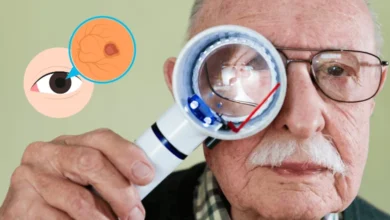99.9% of your DNA is the same as any other human’s DNA. This is what makes every human so similar to one another.
But, what about that 0.01%? Well, this contains things like eye color, hair color, and even weight.
Yes, that’s right: weight. New studies show that genetics and weight may be connected. More specifically, researchers believe that our genetics may be the key to finding out how to lose weight.
To learn more about genetic weight loss, keep reading.
1. Nature vs. Nurture
It’s one of the oldest arguments in scientific history. Which affects us more: nature or nurture? In other words, does the environment around us or the genes inside us affect us more?
Well, we don’t know.
According to the Centers for Disease Control and Prevention (CDC), there’s no way to truly tell how much our genes control our weight. However, some researchers argue that genes work too slowly to be the main contributor to problems like the American obesity epidemic.
Thus, there have to be other factors at play. More specifically, our environment has to affect our weight somehow. Mainly, researchers have found that the following environmental factors contribute to weight gain:
- Sedentary lifestyles
- Diets high in processed foods, sugar, and fat
- Weight-loss fads
- Health conditions
- Psychological problems
- Medications
However, even with all of these environmental factors, researchers agree that genetics play a big role in addressing the strategy that you should use if you want to lose weight.
2. Genetic Weight Problems
Even though a combination of genetic and environmental factors contributes to weight problems, it’s important to recognize where you lay. In other words, you should determine whether your weight is from genetic issues or lifestyle issues.
If you have a genetic weight problem, you can likely determine this by looking at your family tree. If one of your parents or both of your parents are overweight, it’s likely that your weight problems are due mainly to genetic factors.
You can also recognize a genetic weight problem by looking at your weight throughout your lifetime. If you’ve been overweight the majority of your life, this is another sign of genetic weight problems.
However, your genetics probably isn’t the main factor in your weight problems if you can control your weight with a conscious effort. If you lose weight easily with proper diet and nutrition, your weight gain is likely heavily related to your lifestyle.
3. The Culprits
There are five genes that researchers have linked to weight problems:
- The FTO gene
- MC4R
- Ankyrin-B
- Panx1
- IRX3
These genes affect several different aspects of our metabolic health. From our body composition to the way that we burn energy, our genetic makeup can determine important health factors related to our weight.
More specifically, each one of these genes plays its own role in weight-related problems.
The FTO gene is directly connected to obese individuals. In fact, people with this gene at 30% more likely to become overweight.
Found on chromosome 16, the FTO gene is a protein that controls fat mass. Thus, it can increase the fat in our bodies.
The melanocortin-4 receptor (MC4R) gene helps to control human metabolism. It controls how much energy we use from our food. And, it contributes to our feelings of hunger.
Some people who have a rare variant of this gene are slightly more likely to be overweight.
ANKYRIN-B is a gene that can cause obesity in a variant form. This form causes fat cells to absorb glucose at higher rates. Thus, this increases the size of cells and causes obesity.
Panx1, or Pannexin 1, is a gene that controls obesity and the accumulation of fat inside the body. Having this gene puts humans at a higher risk for obesity.
The iroquois homeobox gene 3 (IRX3) may make it more difficult to lose weight. Individuals who are deficient in the expressions of this gene are more likely to lose weight easily.
Along with these genes, there are hundreds of others. If you want to find out whether or not you have one of these genes related to weight problems, you should consider getting genetic testing at dietcypher.com.
4. Timing
When it comes to taking control of these genes, timing is crucial. The sooner you address and work to solve your weight, the more successful you’re going to be.
Unfortunately, weight issues can build up over time. And, with weight gain, you may experience a myriad of health complications. Once you start getting diagnosed with all of these conditions, it’s hard to turn back.
So, you have to take advantage of the time that you have now.
However, that isn’t to say that patients with heart disease or diabetes are a lost cause. In fact, they can reverse their symptoms and prognoses.
But, it’s going to be harder the longer that you wait. Talk to your doctor and get started today.
5. Tenacity
Your genetics can make it seem impossible to lose weight. And, if you come from a family plagued by obesity, it may feel like you’re a lost cause.
But, you’re not.
It’s never too late to try to turn your health around, even if takes some tenacity and determination to get there.
We highly recommend speaking with your physician about personalized weight loss recommendations for you. It’s possible that your genetics could be holding you back from losing all of that weight.
It’s also important that we point out evidence-based decision-making. As you’re changing your lifestyle and diet to complement your genetic makeup, you should consult your physician.
No more fad diets. No more shortcuts. It’s time to take care of your body using the genetics that you were born with.
The Genetic Weight Loss Trend
It may seem like genetic weight loss is too good to be true. But, it exists. And, physicians everywhere are using genetics to help their patients lose weight naturally.
You don’t have to worry about scary procedures or experimental diets. Just get in contact with your physician and have a real talk about your genetic makeup.
For more research-based articles like this, check out the rest of our blog.






